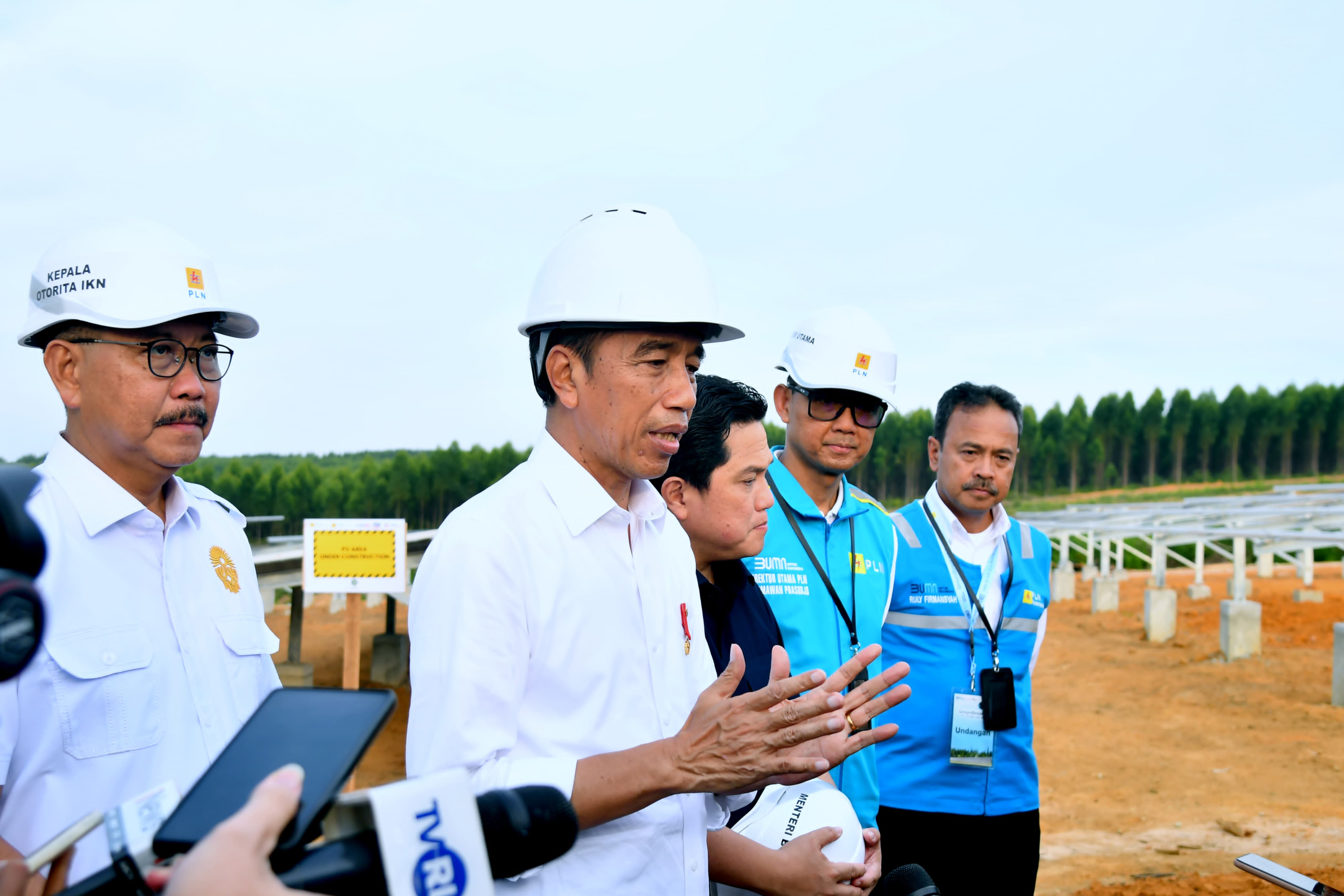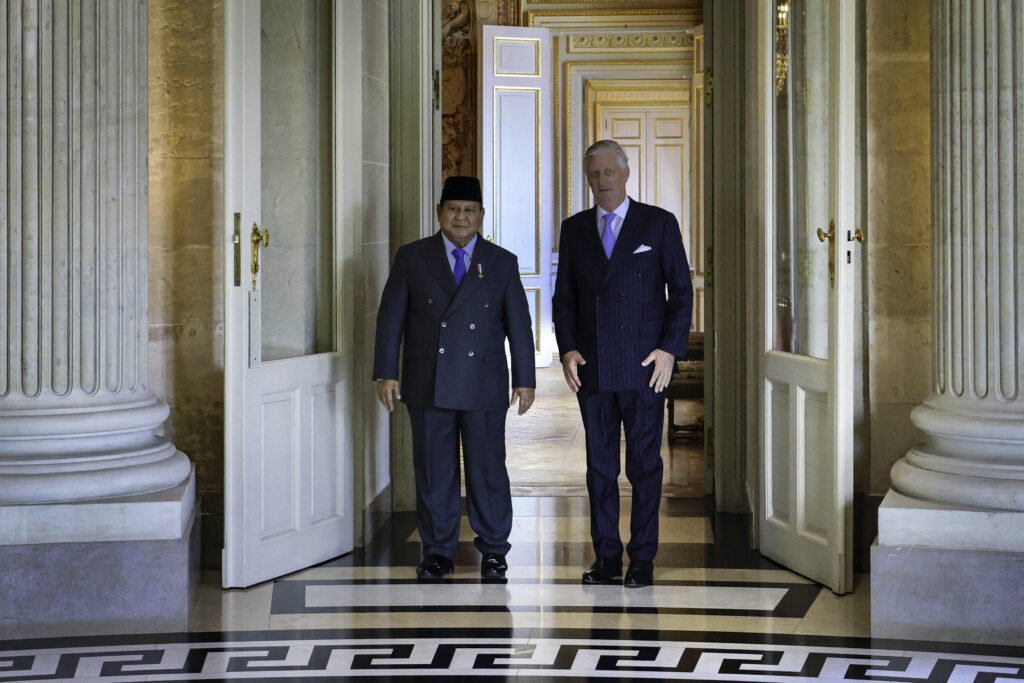President Jokowi Emphasizes Government Commitment to Sustainability of IKN Development

Presiden dalam keterangannya kepada awak media usai melakukan peletakan batu pertama pembangunan Pembangkit Listrik Tenaga Surya (PLTS) di kawasan IKN, Provinsi Kalimantan Timur, pada Kamis, 2 November 2023.
President Jokowi gives a press statement after groundbreaking ceremony for the construction of a Solar Power Plant (PLTS) in the Nusantara Capital City (IKN) area, East Kalimantan on Thursday (11/02). (Source: BPMI Setpres)
President Joko “Jokowi” Widodo reaffirmed the Government’s commitment to the sustainability of the Nusantara Capital City (IKN) development. According to the President, the construction of IKN has been mandated by law and approved by 93 percent of the parliamentary factions.
“IKN has its own law, and that law is supported by 93 percent of the parliamentary factions in the DPR (House of Representatives). What else would you like to ask? It’s 93 percent,” said the President in his statement to the media after groundbreaking ceremony for the construction of the Solar Power Plant (PLTS) in the IKN region, East Kalimantan, on Thursday (11/02).
The President stated that the Government is currently focusing on preparing essential infrastructure in IKN, including the construction of the presidential palace, presidential and vice-presidential offices, ministerial/agency offices, water resources, and electricity.
Furthermore, the Government is expediting the involvement of private investors and businesses in the development of IKN. The President mentioned that, for the past two to three months, various private entities have already initiated the construction of several infrastructure projects.
“We can see that in the business world, two or three months ago, they already began building hotels, hospitals, shopping malls, schools, training centers, and more,” President Jokowi remarked.
According to the President, there is around Rp45 trillion worth of construction to be realized by December. Nevertheless, he emphasized that IKN is a long-term project.
“However, once again, this is not just for next year’s project, it could take 15 years, 20 years, or even 10 years if the private sector progresses rapidly, why not? So, it’s 20 percent sourced from the state budget, and 80 percent from the private sector,” he remarked. (BPMI SETPRES/UN) (AS/MUR)








